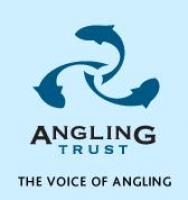
Widespread dredging could make flooding in some communities worse in future – not better – according to a new report published by The Chartered Institution of Water and Environmental Management (CIWEM) and endorsed by the Blueprint for Water coalition of environmental NGOs which includes the Angling Trust.
Far from advocating dredging as a panacea, the report – published by independent flood management experts CIWEM, and backed by a range of organisations – suggests solely relying on dredging can even make some downstream communities more vulnerable to the risk of flooding by moving water more quickly down the river catchments.
Anglers in particular are concerned that politicians could be about to take us back to the 1960’s and 70’s and turn many rivers into straightened flood channels in order to be seen to be ‘doing something’. But this week’s independent report ‘Floods and Dredging – A Reality Check’ demonstrates that all the evidence shows that flood risks are best managed by holding water back for as long as possible at the top of the catchments, ending damaging farming practices and protecting the floodplains from development. The report makes it clear that dredging is not a stand-alone solution. It is one of a range of tools and interventions, such as reducing run-off, working with natural processes to slow the flow of water, and increasing infiltration and flood storage throughout catchments.
Nigel Hendley, CIWEM’s Interim Chief Executive, said: “Dredging can be successfully employed to reduce flood impact under certain conditions, and alongside other measures to protect river ecology, but it can also have serious impacts on downstream flood risk so requires very careful consideration as an option. We should seek sustainable alternatives wherever possible and assess these as well as dredging on a site by site basis.”
Martin Salter, National Campaigns Coordinator at the Angling Trust, who helped commission the report, said: “Rivers establish flood plains for a purpose and we abuse them at our peril. Dredging is no silver bullet but proper catchment management can make a difference. The government also needs to toughen up rather than weaken planning protection for vulnerable floodplains. It’s both and ridiculous worrying to hear that at time like this that swingeing cuts are being planned to the Environment Agency.”
He added: “You don’t have to have spent half a lifetime as an angler, boater or wildfowl enthusiast to have a basic understanding of how river catchments work and what makes flooding more or less likely – but it helps. As the flooding crisis has unfolded, the lack of science and evidence in the public debate on these issues needed to be challenged. This important report confirms what many anglers already know but which many politicians have failed to grasp. With EA figures showing that dredging the Thames tributaries could result in another 550 million gallons a day hitting already flooded communities in Berkshire and Surrey.”
Mark Lloyd, Chief Executive of the Angling Trust said: “Whilst it is clear that addressing the immediate needs of affected communities must take priority, we hope that once the flood waters have subsided lessons will be learned from these floods. A longer-term, evidence-based policy of sustainable land use management is needed to address both flooding and drought across the whole catchment. That would be the best outcome for people, wildlife and the environment.”








